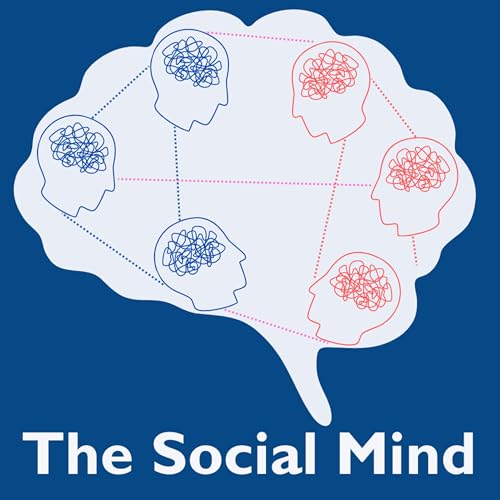Episodio 25 – Perché passare del tempo a contatto con la natura ci fa sentire meglio?
In questo episodio esploriamo il potere rigenerante della natura sulla mente e il corpo umano. Attraverso una revisione di studi scientifici, analizziamo come spazi verdi e ambienti acquatici influenzano lo stress, la salute mentale e persino i comportamenti sociali. Scopriamo come la semplice esposizione a questi ambienti possa migliorare la concentrazione, ridurre il rischio di disturbi psichiatrici e promuovere la cooperazione e l'altruismo. Infine, offriamo consigli pratici su come integrare questi benefici nella vita quotidiana, valorizzando luoghi che combinano acqua e vegetazione.
The Social Mind è un podcast scritto, registrato e prodotto da Giovanni Telesca.
Contatti: thesocialmind@giovannitelesca.net
www.instagram.com/thesocialmind_podcast
www.giovannitelesca.net/the-social-mind-podcast/
Fonti e approfondimenti:
Bratman, G. N., Hamilton, J. P., Hahn, K. S., Daily, G. C., & Gross, J. J. (2019). Nature experience reduces rumination and subgenual prefrontal cortex activation. Proceedings of the National Academy of Sciences, 112(28), 8567-8572.
Capaldi, C. A., Passmore, H. A., Nisbet, E. K., Zelenski, J. M., & Dopko, R. L. (2015). Flourishing in nature: A review of the benefits of connecting with nature and its application as a wellbeing intervention. International Journal of Wellbeing, 5(4), 1-16.
Coss, R. G., & Keller, C. M. (2022). Transient decreases in blood pressure and heart rate with increased subjective level of relaxation while viewing water compared with adjacent ground. Journal of Environmental Psychology.
Diessner, R., Klebl, C., Mowry, G., & Pohling, R. (2023). Natural and moral beauty have indirect effects on proenvironmental behavior. Ecopsychology, 14(2), 71-82.
Engemann, K., et al. (2019). Residential green space in childhood is associated with lower risk of psychiatric disorders from adolescence into adulthood. PNAS, 116(11), 5188-5193.
Kaplan, R., & Kaplan, S. (1989). The experience of nature: A psychological perspective. Cambridge university press.
Lee, K. E., Williams, K. J., Sargent, L. D., Williams, N. S., & Johnson, K. A. (2015). 40-second green roof views sustain attention: The role of micro-breaks in attention restoration. Journal of Environmental Psychology.
White, M. P., et al. (2020). Spending at least 120 minutes a week in nature is associated with good health and wellbeing. Scientific Reports.
Wyles, K. J., Pahl, S., Thomas, K., & Thompson, R. C. (2017). Factors that can undermine the psychological benefits of coastal environments: Exploring the effect of tidal state, presence, and type of litter. Environment and Behavior.
Credits:
La sigla è “Pop Culture” di SoundRoll
Music from #Uppbeat (free for Creators!):
https://uppbeat.io/t/soundroll/pop-culture
License code: UXDM5WZWON73REIO
 17 mins
17 mins 14 mins
14 mins 13 mins
13 mins 15 mins
15 mins 15 mins
15 mins 17 mins
17 mins 14 mins
14 mins 16 mins
16 mins
